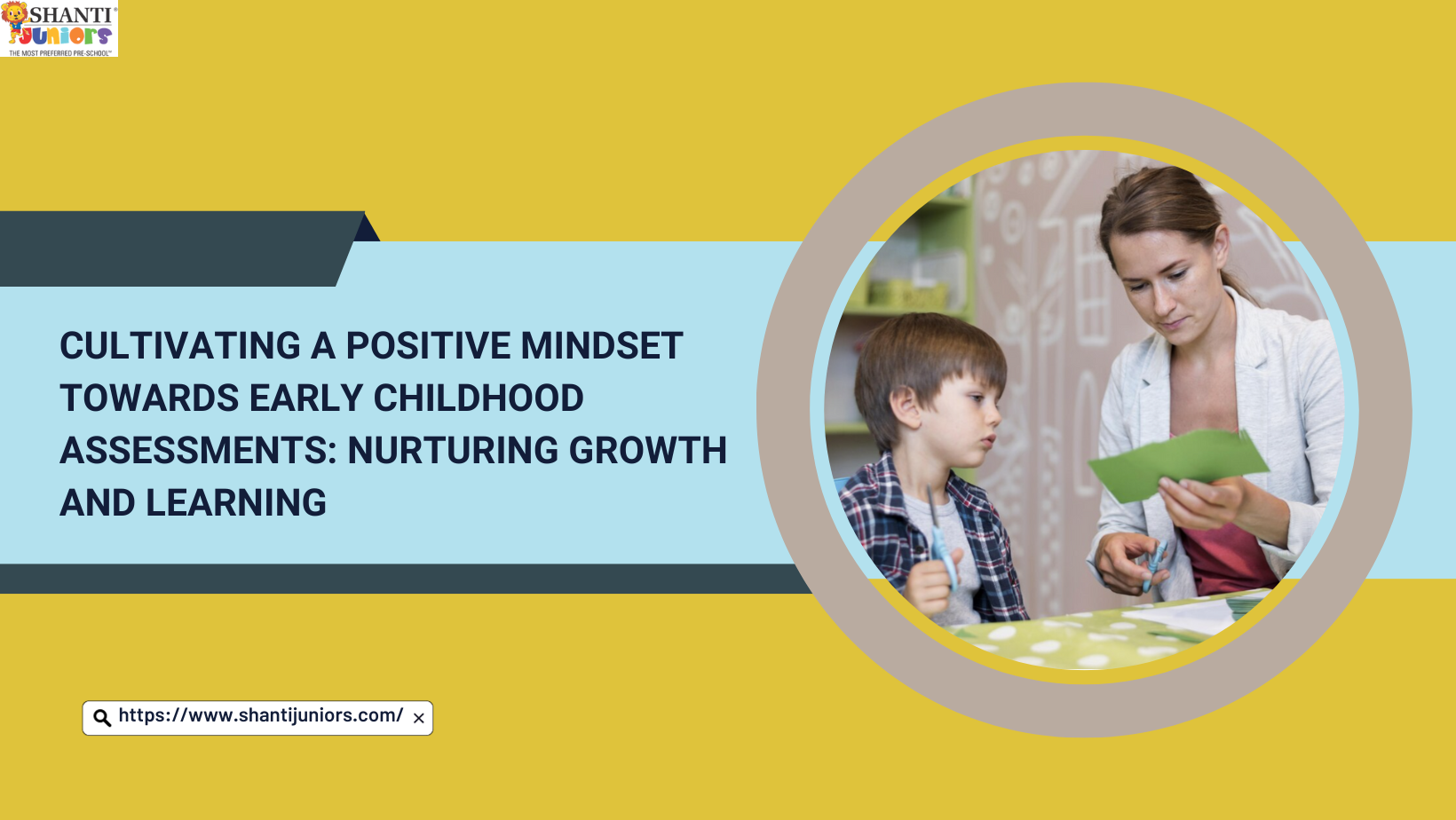

Early childhood assessments play a pivotal role in understanding a child's development and learning progress. However, the approach towards assessments needs to be positive, empowering, and focused on nurturing growth rather than merely evaluating performance. In this blog, we will explore the significance of cultivating a positive mindset towards early childhood assessments and how it can contribute to the holistic development of young learners.
Early childhood assessments play a pivotal role in understanding a child's development and learning progress. However, the approach towards assessments needs to be positive, empowering, and focused on nurturing growth rather than merely evaluating performance. In this blog, we will explore the significance of cultivating a positive mindset towards early childhood assessments and how it can contribute to the holistic development of young learners.
Early childhood assessments are not meant to label or judge a child's capabilities. Instead, they provide valuable insights into a child's strengths, areas of growth, and learning preferences. These insights guide educators and parents in tailoring an appropriate and effective learning environment for the child.
A positive mindset towards assessments involves shifting the focus from grades and scores to growth and progress. Assessments should measure how far a child has come in their learning journey, recognizing and celebrating their individual milestones and achievements.
Creating a safe and supportive environment is paramount in cultivating a positive attitude towards assessments. Children need to feel secure and encouraged to showcase their abilities without fear of judgment. Encouragement and constructive feedback should be the cornerstones of this environment.
Early childhood assessments should serve as tools to guide instruction and tailor educational strategies. Educators can utilize assessment results to identify areas where a child might need additional support or challenge. This way, assessments become a means to improve teaching methods and meet each child's unique learning needs.
A positive mindset involves recognizing that every child has a unique way of demonstrating understanding and knowledge. Incorporating a variety of assessment techniques, such as observations, play-based assessments, and interactive assessments, ensures a more accurate representation of a child's abilities.
Also Read: Nurturing Success: The Role of Teaching Kindness to Children
When communicating assessment results to parents, caregivers, and the child, it's crucial to emphasize growth, effort, and improvement rather than just the outcome. This constructive approach motivates children to continue striving for progress and fosters a sense of pride in their achievements.
Engaging parents in the assessment process creates a supportive network for the child. Parents should be informed about the purpose of assessments, the child's progress, and how they can contribute to their child's learning journey. Collaboration between educators and parents strengthens a child's support system.
A positive mindset towards assessments instills a lifelong love for learning in children. When assessments are viewed as opportunities to learn and grow rather than tests to pass, children develop a curiosity-driven mindset that continues into adulthood.
Cultivating a positive mindset towards early childhood assessments is fundamental for the overall well-being and development of young learners. Assessments should be viewed as tools for growth, understanding, and tailored support rather than rigid evaluations. By fostering a positive approach, we can create an environment that encourages learning, celebrates progress, and instills a lifelong passion for knowledge in our children.